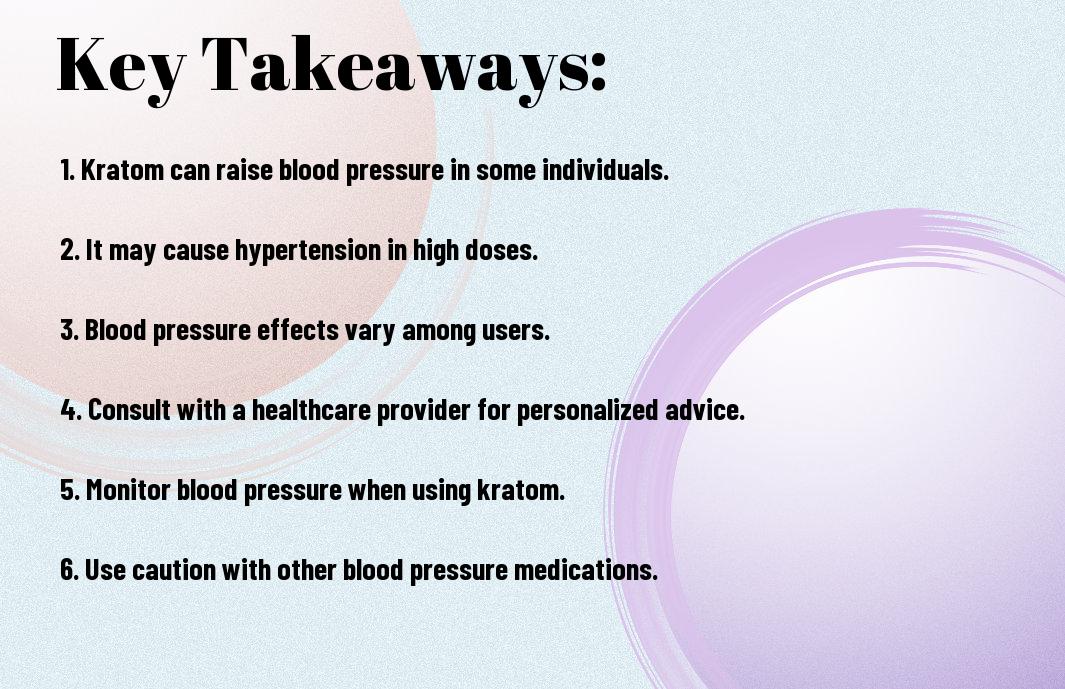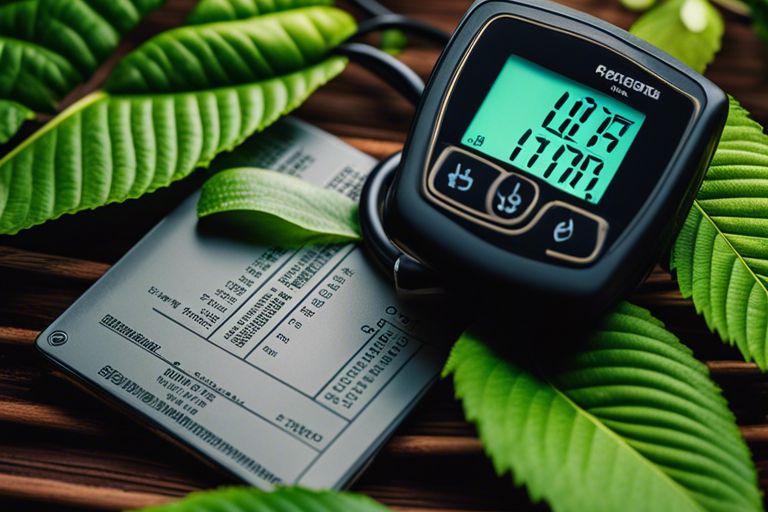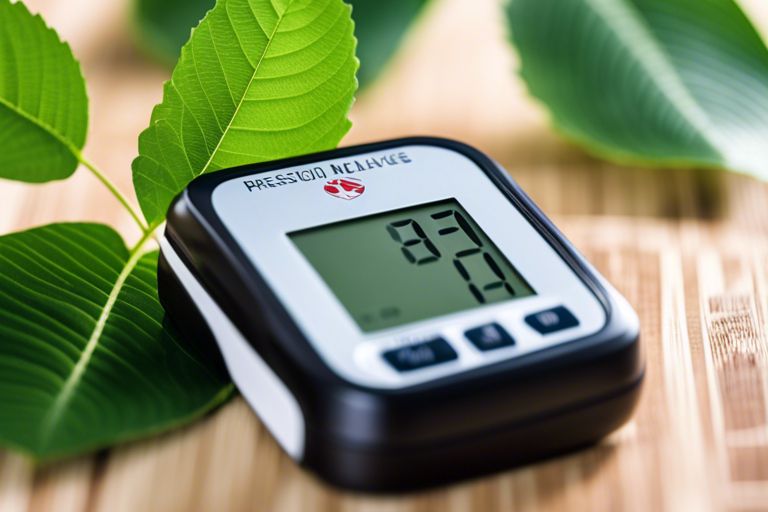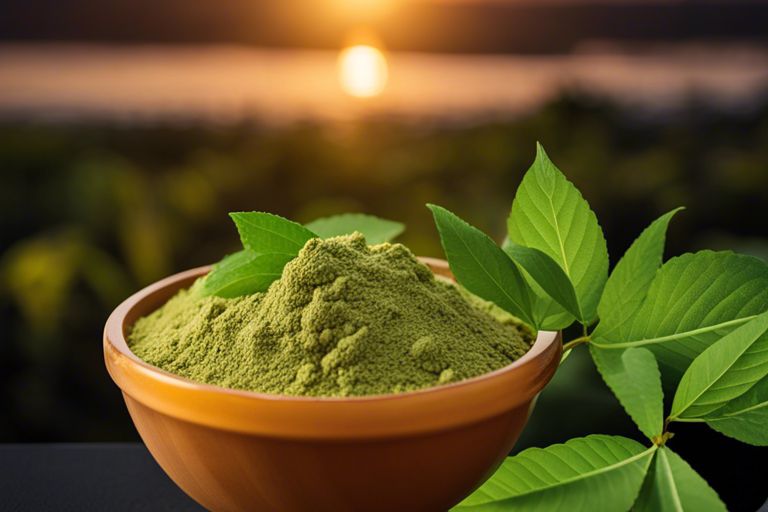It’s crucial to understand how kratom affects your body, especially when it comes to its impact on your blood pressure. Many individuals turn to kratom for its potential health benefits, but it’s important to know the possible consequences. In this blog post, we will explore the connection between kratom and blood pressure, helping you make an informed decision about its use.

What is Kratom?
For those unfamiliar with kratom, it is a tropical tree native to Southeast Asia that belongs to the coffee family. Kratom leaves have been traditionally used for their stimulant and pain-relieving properties.
Origins and History
Any discussion about kratom would be incomplete without mentioning its origins and historical significance. Kratom has a long history of use in countries like Thailand, Indonesia, Malaysia, and Papua New Guinea, where it has been consumed for its various medicinal and recreational purposes.
Chemical Composition
An understanding of kratom’s chemical composition is crucial in grasping its effects on the body. Kratom contains active compounds known as alkaloids, with mitragynine and 7-hydroxymitragynine being the primary alkaloids responsible for its psychoactive properties.
Composition of kratom can vary depending on factors such as the region it is sourced from and the specific strain of the plant. Different strains of kratom may have varying concentrations of alkaloids, influencing the overall effects experienced by the user.
How Does Kratom Affect the Body?
While kratom affects individuals differently, it primarily interacts with your body through its active compounds, called alkaloids. The two main alkaloids in kratom, mitragynine, and 7-hydroxymitragynine, bind to your brain’s opioid receptors, producing a range of effects.
Stimulation and Relaxation
Stimulation: Depending on the dosage and strain of kratom you consume, you may feel either stimulated or relaxed. Low doses of kratom often result in increased energy, focus, and alertness, similar to the effects of caffeine. However, higher doses tend to promote relaxation, calmness, and even sedation.
Opioid Receptors and Pain Relief
One: Kratom’s interaction with opioid receptors can lead to pain relief effects similar to prescription opioids. By binding to these receptors in the brain and spinal cord, kratom can help alleviate pain sensations throughout your body.
For instance, if you are experiencing chronic pain or discomfort, you may find that kratom provides relief by targeting these opioid receptors and altering your perception of pain.
The Connection Between Kratom and Blood Pressure
Despite the increasing popularity of kratom in managing various health conditions, there is ongoing debate about its effects on blood pressure. Some studies suggest that kratom may influence blood pressure, but the exact mechanisms are not fully understood. Let’s probe into some key factors that may shed light on the connection between kratom and blood pressure.
Vasoconstriction and Vasodilation
Vasodilation is the process of relaxing the blood vessels, which can lead to a decrease in blood pressure. On the other hand, vasoconstriction is the narrowing of blood vessels, which can result in increased blood pressure. The alkaloids present in kratom may have a complex interaction with your body’s vascular system, potentially influencing the balance between vasodilation and vasoconstriction.
Adrenaline and Stress Response
Adrenaline, also known as epinephrine, is a hormone that is released in response to stress or danger. It can cause your heart rate and blood pressure to increase temporarily. Kratom has been reported to have stimulating effects on the body, which may impact your adrenaline levels and stress response.
Between the potential effects on vasodilation, vasoconstriction, and adrenaline levels, kratom could have varying effects on your blood pressure. It is important to monitor your blood pressure regularly if you are using kratom, especially if you have preexisting high blood pressure or heart conditions.

The Science Behind Kratom’s Effect on Blood Pressure
Research Studies and Findings
To understand how kratom affects blood pressure, researchers have conducted various studies. Some studies suggest that certain alkaloids in kratom may have the potential to lower blood pressure. These alkaloids appear to have a relaxing effect on the cardiovascular system, dilating blood vessels and reducing the workload on the heart, which could lead to a decrease in blood pressure.
Conflicting Results and Limitations
Conflicting results have been found in studies investigating the impact of kratom on blood pressure. While some research indicates a potential to lower blood pressure, other studies have shown mixed results or even indicated a potential for kratom to elevate blood pressure in certain individuals. It is necessary to note that individual responses to kratom can vary based on factors such as dosage, frequency of use, and an individual’s overall health status.
Plus, certain limitations in the current research make it challenging to draw definitive conclusions about the relationship between kratom and blood pressure. Some studies have been conducted on animals rather than humans, and human studies often rely on self-reporting of kratom use, which can introduce bias. More research is needed to fully understand the impact of kratom on blood pressure and to determine how it may affect different individuals.
Factors That Influence Kratom’s Impact on Blood Pressure
Your blood pressure levels can be influenced by a variety of factors when taking kratom. Understanding these factors is important in managing and predicting how kratom may affect your blood pressure.
Dosage and Individual Tolerance
With kratom, the dosage and your individual tolerance play a significant role in how it may impact your blood pressure. Higher doses of kratom are more likely to have a pronounced effect on your blood pressure. Additionally, your tolerance to kratom can also impact how your body responds to its effects.
This is why it’s crucial to start with a lower dose and gradually increase it as needed while monitoring your blood pressure levels to ensure your safety and well-being.
Method of Consumption and Bioavailability
With different methods of consuming kratom, such as capsules, teas, or extracts, the bioavailability of the active compounds can vary. This can affect how quickly and how strongly kratom may impact your blood pressure levels.
Blood pressure levels can be influenced by how quickly your body absorbs kratom and how much of the active compounds are available to affect your physiological response.
Managing Blood Pressure While Using Kratom
After learning about kratom and its potential effects on blood pressure from What Is Kratom? Uses, Side Effects And More, it’s important to manage your blood pressure while using this substance to ensure your well-being.
Monitoring Blood Pressure Regularly
An imperative step in managing your blood pressure while using kratom is to monitor it regularly. It’s recommended to check your blood pressure at home or visit a healthcare professional to track any changes or fluctuations. By keeping a close eye on your blood pressure readings, you can be proactive in addressing any concerns that may arise.
Lifestyle Changes and Healthy Habits
Pressure:
It’s crucial to maintain a healthy lifestyle and incorporate habits that support good blood pressure levels. This includes eating a balanced diet, engaging in regular physical activity, managing stress effectively, getting an adequate amount of sleep, and avoiding tobacco and excessive alcohol consumption. These lifestyle changes can help support your overall health and contribute to better blood pressure management while using kratom.
Final Words
Now you should have a clear understanding that kratom can have a direct impact on your blood pressure. While some studies suggest that kratom may raise blood pressure, individual reactions can vary. It’s crucial to monitor your blood pressure closely if you choose to use kratom, especially if you have pre-existing hypertension or heart conditions. Consulting with a healthcare professional before incorporating kratom into your routine is always a wise decision to ensure you are making safe choices for your health.
FAQ
Q: Does kratom raise blood pressure?
A: While some studies suggest that kratom may increase blood pressure, more research is needed to fully understand its effects on blood pressure.
Q: What are the potential factors that may contribute to kratom raising blood pressure?
A: The potential factors may include the strain of kratom, the dosage, an individual’s sensitivity to kratom, and any pre-existing medical conditions.
Q: Can kratom interact with medications that treat high blood pressure?
A: Yes, kratom may interact with medications for high blood pressure, so it is important to consult with a healthcare professional before using kratom.
Q: Are there safer alternatives to manage pain or other conditions without affecting blood pressure?
A: Yes, there are alternative therapies such as physical therapy, acupuncture, or certain medications that may help manage pain or other conditions without affecting blood pressure.
Q: What are the symptoms of high blood pressure that one should be aware of while taking kratom?
A: Symptoms of high blood pressure may include headache, dizziness, chest pain, shortness of breath, and vision problems. If these symptoms occur, seek medical attention immediately.
Q: How can one monitor their blood pressure while using kratom?
A: It is important to regularly check and monitor your blood pressure using a home blood pressure monitor or by visiting a healthcare provider regularly while using kratom.
Q: Is it recommended for individuals with high blood pressure to use kratom?
A: Individuals with high blood pressure or cardiovascular conditions should exercise caution and consult with a healthcare provider before using kratom due to potential effects on blood pressure.










